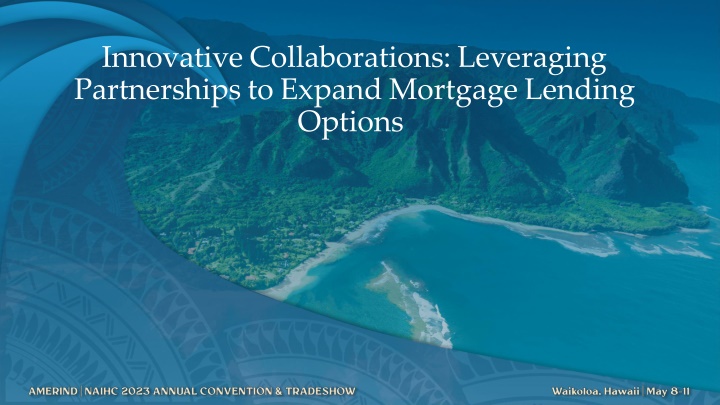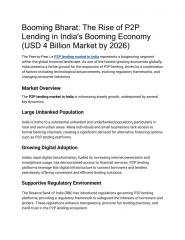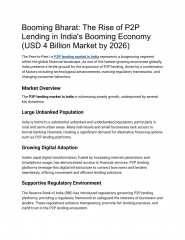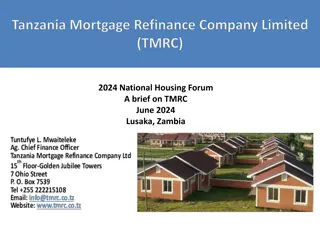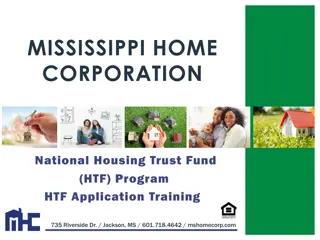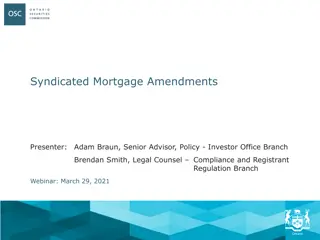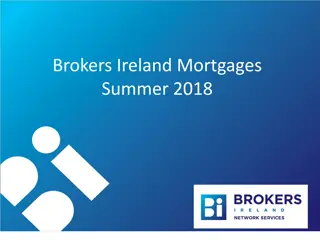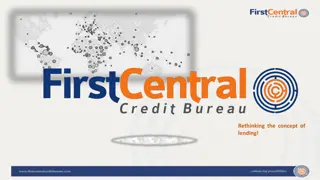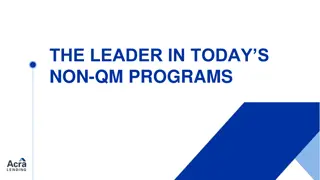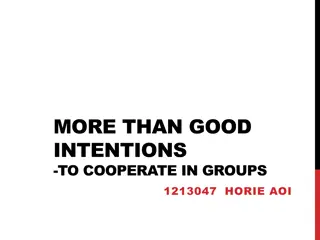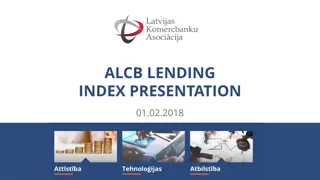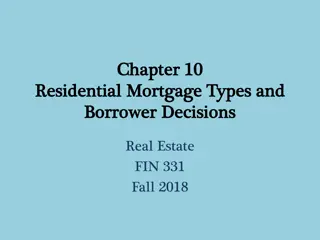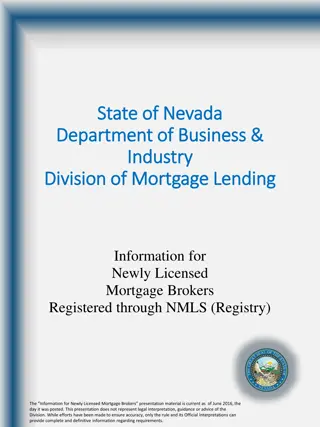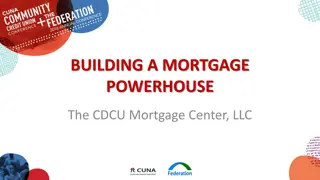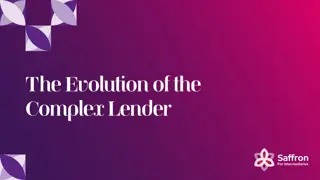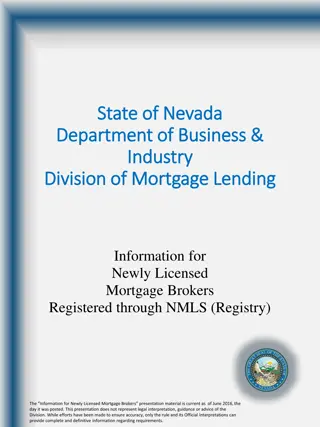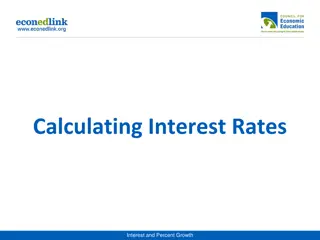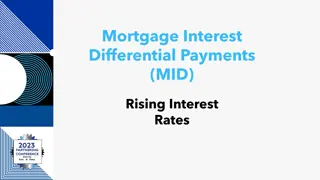Innovative Collaborations: Expanding Mortgage Lending Options with Fannie Mae
Leveraging partnerships to enhance mortgage lending options, Fannie Mae works to support homeownership by facilitating access to affordable financing in diverse markets, including Tribal Trust Lands and Native American communities. Through its Duty to Serve commitment, Fannie Mae actively engages with rural and Native American populations, offering a range of loan products and support services to promote homeownership and financial inclusion.
Download Presentation

Please find below an Image/Link to download the presentation.
The content on the website is provided AS IS for your information and personal use only. It may not be sold, licensed, or shared on other websites without obtaining consent from the author.If you encounter any issues during the download, it is possible that the publisher has removed the file from their server.
You are allowed to download the files provided on this website for personal or commercial use, subject to the condition that they are used lawfully. All files are the property of their respective owners.
The content on the website is provided AS IS for your information and personal use only. It may not be sold, licensed, or shared on other websites without obtaining consent from the author.
E N D
Presentation Transcript
Innovative Collaborations: Leveraging Partnerships to Expand Mortgage Lending Options Fannie Mae Confidential
Presenters Benjamin Navarro Advisor, Fannie Mae benjamin_navarro@fanniemae.com Denise Zuni, Owner, Sh eh Wheef Law Offices dzuni@live.com Sharon Vogel Executive Director, Cheyenne River Housing Authority svogel@crhanetwork.org Deborah Webster Principal, Concept Consulting Group, LLC dwebsterccg@me.com 2
Fannie Mae and Fannie Mae Conventional Loan Options on Tribal Trust Lands Benjamin Navarro, Advisor 3
What is Fannie Mae? Fannie Mae (FNMA) is a government-sponsored enterprise (GSE) established by Congress to improve access to mortgage loan capital in the US. Our mission is to expand homeownership by supporting a secondarymarket for mortgage loans (more on this on the next slide). We are regulated and accountable to our regulator, the Federal Housing Finance Agency, and ultimately to Congress. FNMA currently buys and guarantees mortgage loan payments for about 40% of all single-family mortgages that are made across the country. The rest are typically sold to Freddie Mac (another GSE), insured by FHA, VA, or USDA, or held in portfolio by banks
What is Fannie Maes Commitment to Native American Communities? Fannie Mae s public mission mandates that it promote access to affordable mortgage financing in all markets at all times. Tribal Trust and Restricted land should be served by this mission, provided Fannie Mae and Tribes can work together to adhere to Tribal laws and respect their sovereignty. Additionally, Fannie Mae has a regulatory Duty to Serve plan, which includes several objectives to increase options for Native Americans seeking to purchase or refinance home loans. 5
How Does FNMA Help Rural and Native American Communities Under Duty to Serve ? What is Duty to Serve? Loan Purchases Investments Outreach and Technical Assistance Loan Products 6
What are Conventional Loans and How Do They Work? A conventional mortgage is one that is not guaranteed or insured by the federal government, such as a HUD 184 or USDA 502 Most conventional mortgages are conforming, which simply means that they meet the requirements to be sold to Fannie Mae. FNMA sets the guidelines for conventional loans that it will purchase from its approved lenders and sell to investors, such as pension funds or insurance companies. Afterwards, it remains involved as a guarantor, meaning it is responsible for any payments missed by the borrower in the event of a default. This flow of financing is referred to as the secondary market. Ultimately, the secondary market lenders to lend to more borrowers than they would otherwise be able to. 7
How does Fannie Maes (FNMA) Native American Conventional Lending Initiative work? Tribe issues residential lease. Native or Other CDFI or TDHE: Provides homebuyer education and second mortgage. Helps family identify housing options. Tribe enters Memorandum of Understanding (MOU) with FNMA. FNMA educates lender about lending process on trust land. Homebuyer Prep Fannie Mae MOU Loan Sale Lender sells conforming loan to FNMA, which rebuilds the Lender s loan capital for new loans Lender may retain or sell rights to service, or manage, the loan. Lending Process Family applies for loan from FNMA -approved lender. Lender approves qualified borrower. Family buys or builds home Fannie Mae Confidential
What Are the Benefits of Conventional Loans on Tribal Trust or Restricted Land? Lenders work with borrowers to understand all of their options, but for many, a conventional loan may be the best fit. A few potential advantages include: No income limits for most products, clear loan limits No upfront mortgage insurance premium Mortgage insurance is cancellable Low down payment with flexible funding sources Applicable to many different types of properties, including MH Lenders can either seek approval to sell loans directly to Fannie Mae or to sell loans indirectly through an already-approved lender 9
What Happens in the event of a Default and Foreclosure? As with all Fannie Mae-backed loans, when a borrower becomes delinquent, loan servicers are required to explore solutions that may help the borrower avoid default and eventual foreclosure. In the event of a default, processes are defined by the MOU and supporting documents agreed upon between the Tribe and Fannie Mae. While each Tribe negotiates the specific terms of its MOU, these are common features: Right of First Refusal for the Tribe to acquire the property after default Jurisdiction of the Tribal Court over the foreclosure process Inability of a non-member of the Tribe to purchase the property outright 10
Where Are We Today? Native American Conventional Lending Initiative (NACLI) Four Tribes with approved FNMA MOUs Active participating FNMA approved lenders Technical assistance is being provided nationwide, with on-the-ground support located in New Mexico, South Dakota, and Montana 10 Tribes have MOUs in place or are in the process of reviewing and potentially adopting MOUs Homeownership Counseling provided to over 1,100 mortgage-ready households through partnership with Oweesta Technical assistance to organizations providing multifamily housing Research into potential investments in Native CDFIs continues 11
How Do You Partner With Fannie? As we will discuss more during today s panel, Tribes and Lenders enter into agreements with Fannie Mae to establish a conventional mortgage program on Tribal lands. Check out our webpage for more detail: https://www.fanniemae.com/singlefamily/native-american-lending Email: Benjamin_Navarro@fanniemae.com kristin_axtell@fanniemae.com 12
Questions? Fannie Mae Confidential
Fannie Mae Legal Infrastructure and Documents for Conventional Financing Denise Zuni, Attorney/Owner, Sh eh Wheef Law Offices 14
Four FNMA Legal Infrastructure Documents (to allow tribal members to obtain conventional loans) 1. Memorandum of Understanding (MOU) Between the Tribe and Fannie Mae approved by FNMA and Tribe 2. Mortgage Law 3. Residential Lease (with FNMA Rider) 4. If needed, MH State law or Model MH Titling Act adopted through Tribal Council Resolution for MH Loans 15
1. Memorandum of Understanding (MOU) Tribal Council Resolution Approving MOU Tribe Promises: That mortgage laws exist Will use approved Residential Lease (includes FM Rider) Allow access to lenders Assist lenders in finding qualified borrower in event of default Assist with recording of leases and mortgages Will support enforcement of foreclosure and evictions in connection with default Will not terminate or cancel lease without prior written consent of Lender and FM if a mortgage exists 16
2. Mortgage/Deed of Trust Law Mortgaging of leased lands Priority of lien Recording Foreclosure Eviction 17
Default and Foreclosure As with all Fannie Mae-backed loans, when a borrower becomes delinquent, loan servicers are required to explore solutions that may help the borrower avoid default and eventual foreclosure. In the event of a default, processes are defined by the loan documents and Tribe s mortgage law 18
3. Residential Lease approved by Tribal Council FNMA Lease Rider Note: May look different than Section HUD 184 Lease 19
Residential Lease and Rider to Lease Standard Lease FNMA Rider to Residential Lease Includes as lender any conventional lender Notice to lender upon termination of trust status of land Tribal consent not required for mortgage of leasehold Tribal consent not required for foreclosure or assignment of lease (tribe still gets right of first refusal upon acceleration of loan) Flood insurance required in special flood hazard areas. No amendment of lease without lender consent. 20
4. MH State law or Model MH Titling Act adopted for MH Loans Ensures MH housing is recognized as real property or real estate and not chattel 21
Questions? Fannie Mae Confidential
Cheyenne River Sioux Tribe Located in Northwest corner of South Dakota About 25,000 enrolled members Tribal headquarters in Eagle Butte, SD
Homeownership Program Partners TDHE Native CDFI
Filling the Affordability Gap for Borrowers CRHA downpayment assistance - $5,000 from IHBG BIA Housing Improvement Program - $10,000 Federal Home Loan Bank of Des Moines Native American Homeownership Initiative (NAHI) SD Native Homeownership Coalition DPA (coming soon)
Badger Park 160 acres Pre-installed infrastructure Mixed-use subdivision Homeownership Rental Commercial Community centers Single-family and multi- family units
Mortgage Loan Options Four Bands portfolio loans USDA 502 Native relending HUD Section 184 USDA 502 Direct VA Native American Direct Loan Conventional loans (coming soon!)
Fannie Mae MOU Process Initiated discussions with elected tribal officials, CRHA, and Four Bands Gathering legal docs Tribal mortgage ordinance Lease Plan to meet with Fannie Mae attorney When docs finalized, we ll send resolution to tribal council for approval
Why Conventional Lending? Provides our community with endless supply of mortgage capital More affordable for certain borrowers (good credit and higher income) Supports our tribal sovereignty
Questions? Fannie Mae Confidential
